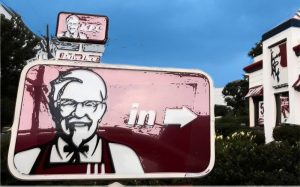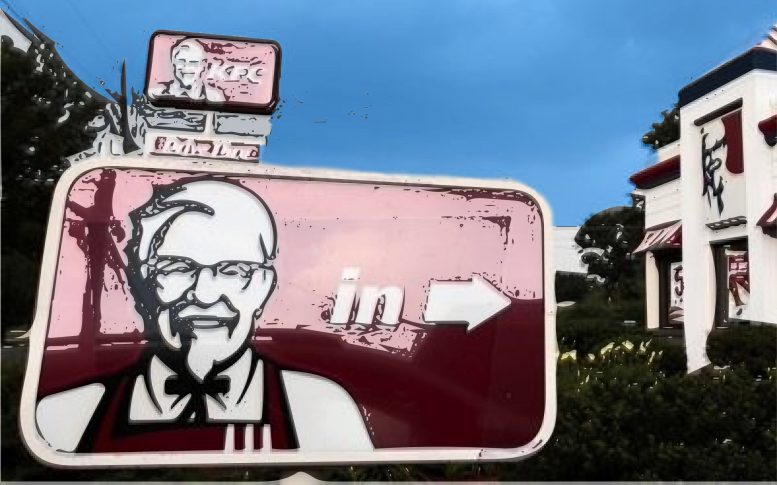Paul Jacob
In the fourth season of Showtime’s Weeds, drug smugglers use a tunnel connecting border towns in California and Mexico, with the American side of the tunnel opening up under a maternity shop.
Yet when a drug-smuggling tunnel was found, last month, connecting a defunct Arizona KFC to a home in Mexico, all the references seemed to be to AMC’s Breaking Bad.
 I guess what stuck out in most people’s minds was the chicken.
I guess what stuck out in most people’s minds was the chicken.
KFC is a fast-food chicken joint. And, in Breaking Bad, the show’s fictional crystal meth operation was run under umbrella of Los Pollos Hermanos, a southwest fast-food chicken franchise run by an evil mastermind.
No tunnels, just chicken.
Last week’s news story is, otherwise, a fascinating tale of can-do smugglers who . . .
OK. One is not supposed to praise drug smugglers.
Yet one must defend them, just as one must defend the free speech rights of vile talkers and chat show hosts and . . . even Alex Jones.
The truth is, for all of our drug agents’ “heroic” efforts to stamp out the illegal drug trade, and for all of the destruction drug misuse can wreak upon human lives, adults do have rights.
Self-medication is surely one of them.
Trying to suppress alcohol misuse by making alcohol illegal during Prohibition proved a massive failure: it increased crime, decreased loyalty to law, and made the United States more violent overall. The same is true of marijuana prohibition — which is being beat back, state by state, through initiative and referendum and even the occasional leadership of legislators.
But carry the logic another step: the same is also true of harder drugs, even crystal meth. Meth users and heroin addicts and the rest also have rights.
The underlying logic of drug prohibition doesn’t make much sense: to save people from ruining their lives through drugs, we ruin their lives via incarceration.
If drug abusers’ problem is a short time horizon — not thinking ahead — threats of future additional negative consequences hardly work. The people prohibition does work on are the people least likely to need the help!
The last twist of the knife is that our criminal justice system cannot even keep drugs out of their prisons. How to keep them out of a free country?
Well, by making the country less free. More like a prison. Which . . . does not work. Rinse; repeat.
So we wind up with an illegal drug industry, black-market trade networks, corruption in government, subversion of the rule of law in countries where some drugs come from, a class-based drug culture, lives wrecked and ruined not by drugs but by the alleged “good guys,” and tremendous human ingenuity being channeled into . . . tunnels.
We used to say “rat hole” when we spoke of government waste.
Maybe the term should be changed to “drug hole.”
And back in San Luis, Arizona, the smugglers’ hole to the tunnel in the KFC measures eight inches in diameter. Big enough to stuff a bucket of chicken, one report tells us.
But the hole created by the War on Drugs? Big enough to fit billions of dollars and millions of lives and any hope of freedom in our time — stuff it all away, just so . . . well, what? Why?
Surely not just so alcoholics and tobacco users can feel better about themselves — they’re not users of the bad drugs! (though the damage done by alcohol has been shown to be far more socially disastrous than any other psychoactive substance) — and surely not so our police can spend time and money and make careers doing work that is not catching murderers, kidnappers, thieves, and other real criminals?
The whole drug war notion has proven to be ineffective as well as corrosive of our civil liberties. And yet we chortle when reports regale us with the news that drug agents have found another clever criminal way around prohibition and surveillance.
More effective, and civil, would be to hold drug users responsible for their use and any resultant ill effects — and for the rest of us to guard against government solutions that make their problems worse and diminish our freedom. The argument that the irresponsibility of some people means we should chuck the idea of freedom altogether, persecuting them instead, has, well, a hole in it.
Townhall.com
September 2, 2018
